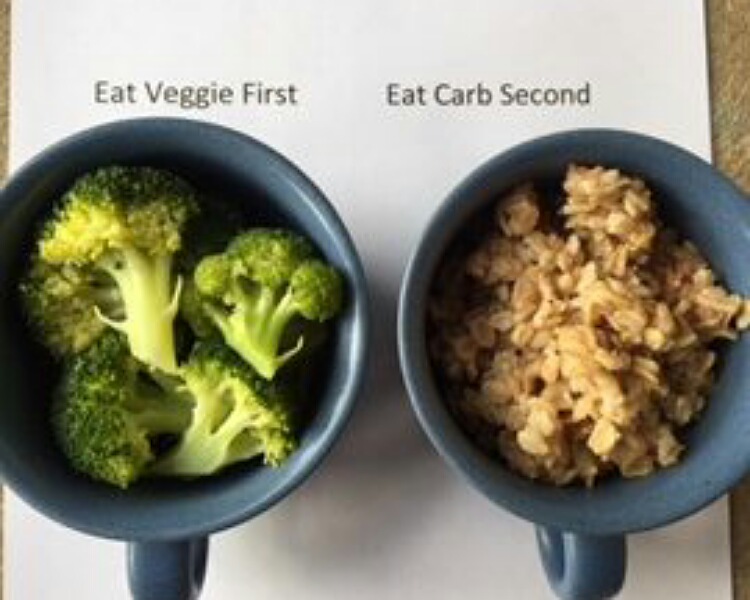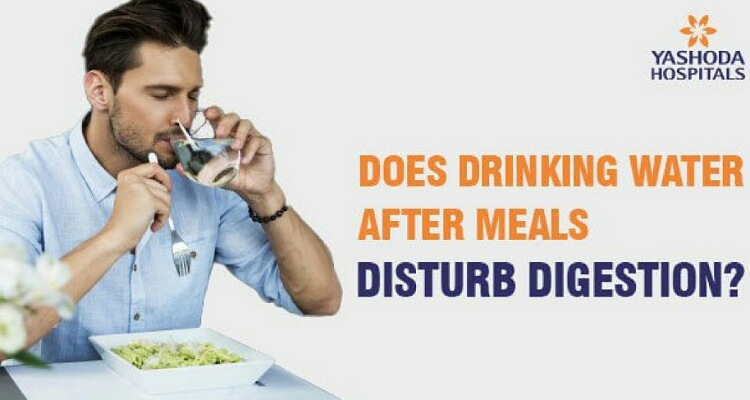Eating healthy is vital but there are a lot of controversies and myths around foods and eating habits. How true are these food-related myths? Let us go through each and bust them.
Food and its digestion
The food we eat first enters the stomach where it stays for sometime before it enters the small intestine. In the stomach, enzymes and gastric juice act on the food and initiate the process of digestion. The stomach can distend and accommodate at least 2 to 4 liters of food and liquids in a healthy adult. When the stomach stretches with the food, the signal is sent to the brain and the feeling of fullness is experienced. But this process is a bit slow and takes about 15 to 20 minutes. Therefore, one should eat and chew food slowly. This will give enough time to the stomach to inform the brain of its fullness. But if one eats fast, the food consumed would be more before the signal is able to reach the brain. Thus, the food eater would have consumed more food that the demands. The extra calories gained would cause a weight gain.

There are some food-related myths about one’s eating habits and sequence is which food is taken.
Vegetables eaten before rice can cause weight loss: one of the food-related myths
There is a saying that if one has to lose weight, he or she should eat vegetables before having rice. This seems to be true. There is a science behind this. Bibi Chia, the principal nutritionist at Raffles Diabetes and Endocrine Centre elaborates:
“Eating vegetables at the start of the meal might ensure a lower intake of the other food groups. It may help you get full faster and stay full longer,”
Bibi adds:
“When you are full, there is a possibility that the intake of carbohydrates from rice or noodles is lower.”
Jaclyn Reutens, a clinical and sports nutritionist and the founder of Aptima Nutrition & Sports Consultants says:
“There are studies showing the overall caloric intake of a meal is lower when vegetables are consumed first. So, for those are looking at weight loss, this could be an easy thing to do.”
This sequence of eating food items at meal also helps prevent high blood sugar spikes in diabetics. This greens-before-carbs approach prevents heart diseases. But juice form of the fruit or vegetable has no fiber and hence does not have the same benefit as eating of the whole vegetable before the rice.
Fruits eaten on an empty stomach are better for quick digestion and to prevent bloating and fermentation

This is not true. Fruits can never ferment in the stomach due to the acidic nature of juices there. Fruits can cause bloating and gas but only in people with Irritable bowel syndrome of IBS. In healthy people, fruits cause no such problems. Also, in these healthy people, there is nothing like a perfect time to have fruits. In fact, having a fiber containing fruit after a meal will help prevent the high blood spikes due to the meal.
Drinking water before meals will dilute the digestive juices and impair digestion
This is false. In fact, having water before a meal is a good idea. Often, one’s body confuses thirst for hunger. If we drink water, we will satisfy our thirst and know that it is not hunger. This will prevent overeating. Water is also important for the digestive process. Jaclyn explains:
“It is the carrier of digestive enzymes and the transport medium for nutrient absorption.”
“At the start of the meal, it is good to be well-hydrated, so that there is a lesser chance of overeating,”
Bibi adds:
“Drinking water before a meal can signal for the digestive enzymes to be produced,”
Also, drink water during and after the meals. Bibi states:
“There is no concern with water ‘diluting’ the gastric juices.”
Alkaline water prevents cancer

Read more: Pomegranate fruit: from mythology to a health beneficial food!
But this is absolutely false. Dr Melvin Look, a consultant surgeon in gastrointestinal, laparoscopic and obesity surgery states:
“There are many claims that alkaline water can neutralise acid in your bloodstream and, in turn, prevent heart disease, osteoporosis and cancer,”
“So far, these claims have not been backed by scientific evidence.”
He adds:
“Alkaline water can also cause side effects such as indigestion and dry, itchy skin.”
